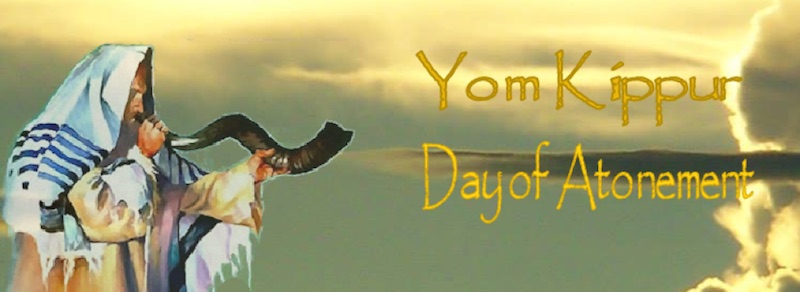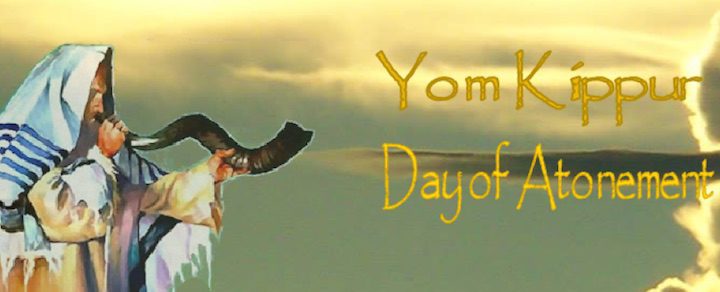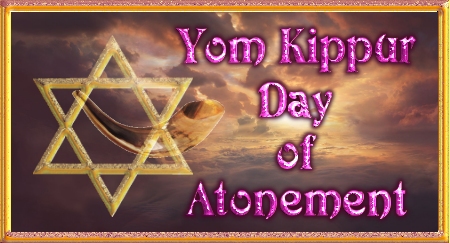There is a period of ten days between Rosh HaShanah (The Feast of Trumpets) and Yom Kippur (The Day of Atonement) which are called the “Days of Awe.” The Sabbath day which falls during this ten-day period is called “The Sabbath of Returning” or “The Sabbath of Repentance.” This year, “The Sabbath of Returning” will fall on September 26, 2020. This Sabbath gets its name from a particular Scripture which is read on this day, Hosea 14:1; “Return O Israel, to the LORD your God, for you have stumbled because of your iniquity.”
The Book of Life
Jewish tradition teaches that there are three books which are opened on Rosh Hashanah:
- The first book is for those who are inherently good and are automatically inscribed in the Book of Life.
- The second book is for those those who are inherently bad and are automatically inscribed for death.
- The third book is for those who are somewhere in the middle, whose fate is not yet sealed.
This is how the “Days of Awe” have gained their fame. During this ten-day period there is an open door for everyone and anyone to repent of their sin and become inscribed in the Book of Life.
Rabbinical Judaism teaches that true repentance has the power to totally annul all sin. Sin that is confessed to God with a heart of true repentance brings total annulment. There are also sins between people and these also need to be rectified.
During the ten days each person goes through deep inner searching and makes amends with both God and man. If anyone has sinned against another person, then the person who has transgressed against the other must go to that person and ask for forgiveness. One must do all that is in his or her power to make amends, as long as it depends on them. Completing the ten days with a clean slate is literally a matter of life and death as understood in religious Judaism.
Yom Kippur
The culmination of the “Days of Awe” takes place on Yom Kippur (The Day of Atonement). Yom Kippur is considered to be the holiest day on the Jewish calendar. This year Yom Kippur will take place on Monday, September 28th, beginning on the evening of Sunday, September 27th and ending on Monday evening, sunset to sunset. The evening and day of Yom Kippur are spent at the synagogue where Scripture is read and prayers are offered. It is a time to “humble oneself” or “afflict one’s soul” (Lev. 23:26-32). The rabbis interpret this phrase “to afflict one’s soul” to mean to fast from food and water on The Day of Atonement and to abstain from certain pleasures in life, including sexual relations. The Torah also commands that there be a sacrifice for sin on this day to make atonement for the people (Lev. 16), however, this is not carried out today due to no existing Temple.
The name “Yom Kippur” is a shortened form of the original Hebrew “יום הכפרים” – “Yom Hakippurim” (Lev. 23:27). The shortened name “Yom Kippur” is in the singular form and the longer name, “Yom Hakippurim,” is in the plural form. The Hebrew word “kippur” means atonement or pardon. On the day before Yom Kippur it is customary to have a literal transfer of sin from a person to a living fowl or a live fish thus providing atonement or pardon.
The Ritual Path to Atonement
A common practice today is to actually take a chicken or a fish (generally a chicken) and to perform a ritual to hopefully achieve atonement. The fowl or fish is waved over the head three times and a prayer is spoken: “This fowl should die and I should merit long life and peace.” It is actually believed that the sins of a person are transferred to the chicken or fish and that the person who has observed this ritual has been pardoned from sin for that year. In this way atonement is made.
There are also people who choose to give charity (money) for atonement instead of actually taking part in the ceremony with the chicken or fish. An example of giving charity in place of this ritual can be seen in the video below.
As seen here in this video, money is placed into an envelope and then a certain prayer is recited three times. The prayer which is recited includes the following verses from the Bible:
If there is an angel as mediator for him,
One out of a thousand,
To remind a man what is right for him,
Then let him be gracious to him, and say,
‘Deliver him from going down to the pit,
I have found a ransom’ – Job 33:23-24
This prayer is accompanied by waving of the envelope with the money in it over the head in the same manner as the chicken or fish is waved over the head. It is believed that through this traditional practice atonement is achieved in accordance with the last phrase from the verses above: “I have found a ransom.” The word here for “ransom” is the Hebrew word “כופר” – “koper,” which means atonement.
The combination of the activities and rituals of Rosh HaShannah, the Days of Awe, and Yom Kippur are the means to an end; Atonement! The Rabbis have prescribed this path for the Jewish people since it is no longer possible to fulfill the Temple sacrifice which God prescribed for The Day of Atonement (Lev. 16).
Biblical Yom Kippur
God’s ultimate plan through the biblical command of Yom Kippur was for the redemption of His people, Jew and Gentile alike (Lev. 16:29). God commanded the high priest to make atonement for himself, for all his household, and for all the people by an animal sacrifice. The blood from the animal sacrifice was to be taken in to the holy of holies and sprinkled on the mercy seat and in front of the mercy seat. It was this act of sacrifice and obedience that brought atonement to all the people under the Covenant at Mount Sinai (Lev. 16:1-16).
God’s ultimate plan is still the same. He desires that all will come to Him and receive atonement by the sacrifice that He demands. Although the Temple no longer exists in Jerusalem, the sacrifice has already been provided. When the prophet John saw Yeshua the Messiah two thousand years ago he declared “Behold, the Lamb of God who takes away the sin of the world!” (John 1:29). Yeshua became the sin sacrifice for Jew and Gentile alike. Yeshua is our atonement! For an explanation of why God chose to use Passover for the fulfillment of the sacrifices and not The Day of Atonement, I recommend the following article: God’s Sacrifice

The Last Trumpet!
The Yom Kippur service concludes with a single blast of the shofar. When the shofar is blown, everyone cries out “Next year in a rebuilt Jerusalem!” This final shofar blast is to remind us of the hope of the re-gathering of all the scattered remnant of the Jewish people to the Land of Israel. Ironically, Yeshua stated that His coming would be accompanied by a great trumpet blast (the last trumpet) when His elect are gathered together (Matt. 24:31 also found in 1 Corinthians 15:50-52 and 1 Thessalonians 4:16). May this day come soon!
Maranatha! בוא ישוע – Bo Yeshua! Come Yeshua!
Scripture Readings for Yom Kippur:
Torah Reading (morning): Lev. 16:1-34 & Numbers 29:7-11
Haftarah Reading (morning): Isaiah 57:14 – Isaiah 58:14
Torah Reading for Mincha prayers (afternoon): Lev. 18:1-30
Haftarah Reading (afternoon): The book of Jonah
If you enjoyed reading this article, share it today with friends! We also invite you to sign up for our weekly Torah Portion commentary on the sidebar to the right.
Help keep our weekly commentaries free and available to all. Click here to donate today:
Return to Torah Portion Homepage
Copyright Jewels of Judaism. All rights reserved 2020





I enjoyed this article even though it is difficult for me to retain all the information. It’s been a while since I’ve read your ministry pieces. I pray that you are well.
Thanks Rosa. It is difficult to put it all together sometimes. I’ve been working hard at this all my life. I’m still learning and growing in understanding in all of these areas. Let us continue to study to show ourselves approved unto God!
I really appreciate this particular article about Yom Kippur. I have enjoyed all of the articles, very much. Your reference to Zech. 8:18-23 really cleared up the whole fasting idea for me. Thank you. Paul says we are to give sacrifices of praise. Hallelujah! Praise Yehovah!
Hi Darlene, thank you for your comments! It is amazing to continually discover the answers that are found in the Bible itself. God bless you! Daniel